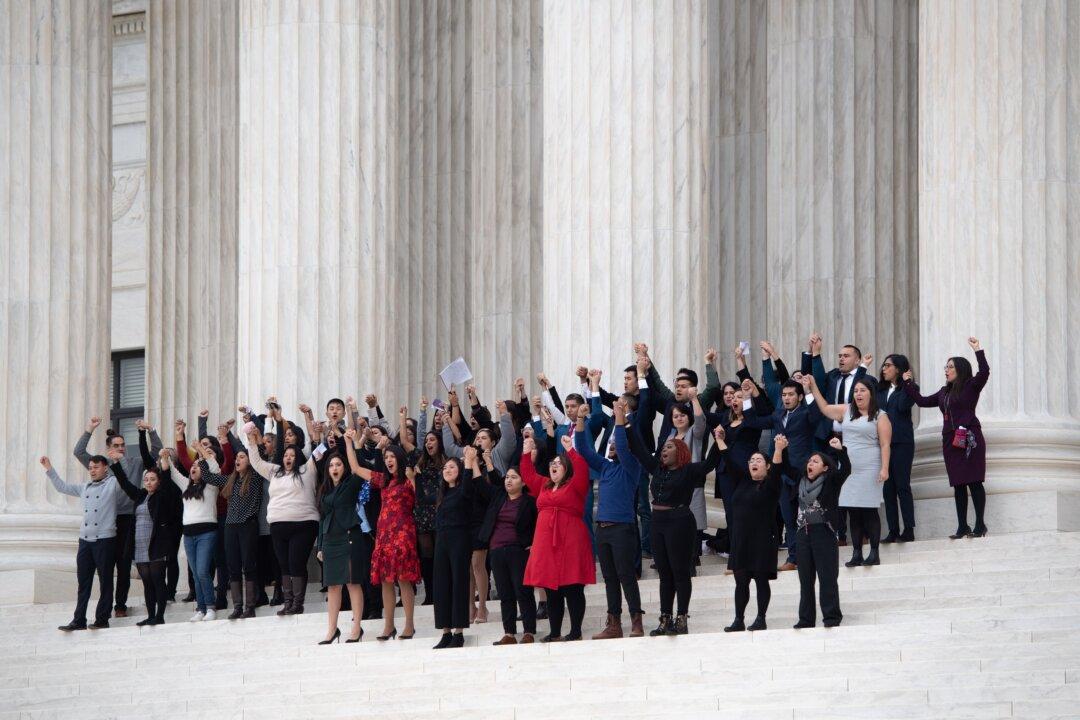WASHINGTON—Former President Barack Obama’s program that temporarily shielded young people who came to the United States illegally from being deported should be struck down as unconstitutional because it was never authorized by Congress, the Trump administration told the Supreme Court on Nov. 12.
There are about 700,000 or more individuals eligible under the Deferred Action for Childhood Arrivals (DACA). They are a subset of about 4 million “Dreamers,” many of whom failed to apply for relief under DACA, but could conceivably qualify under the kind of amnesty that Democrats and some Republicans are pushing for in Congress.





